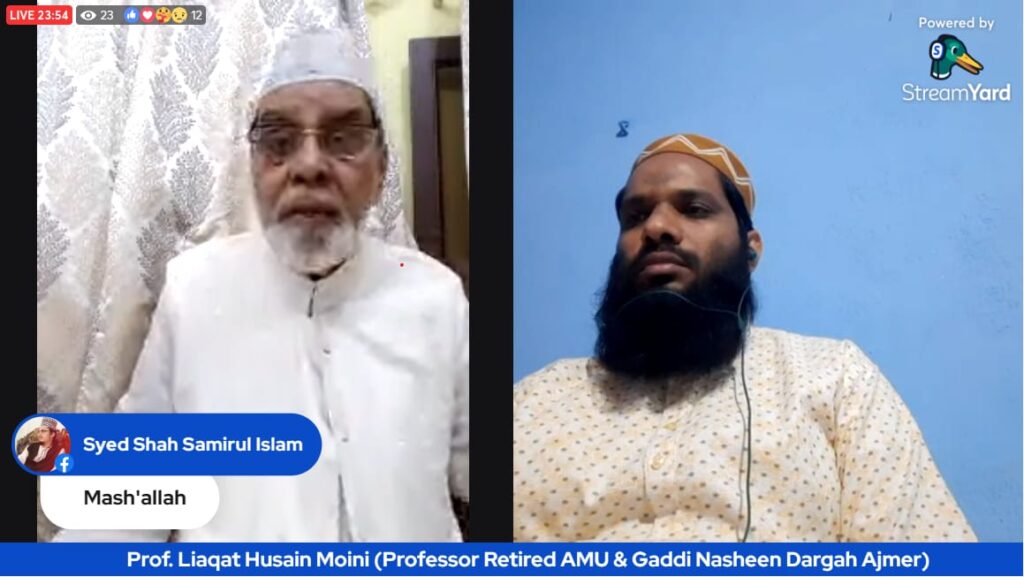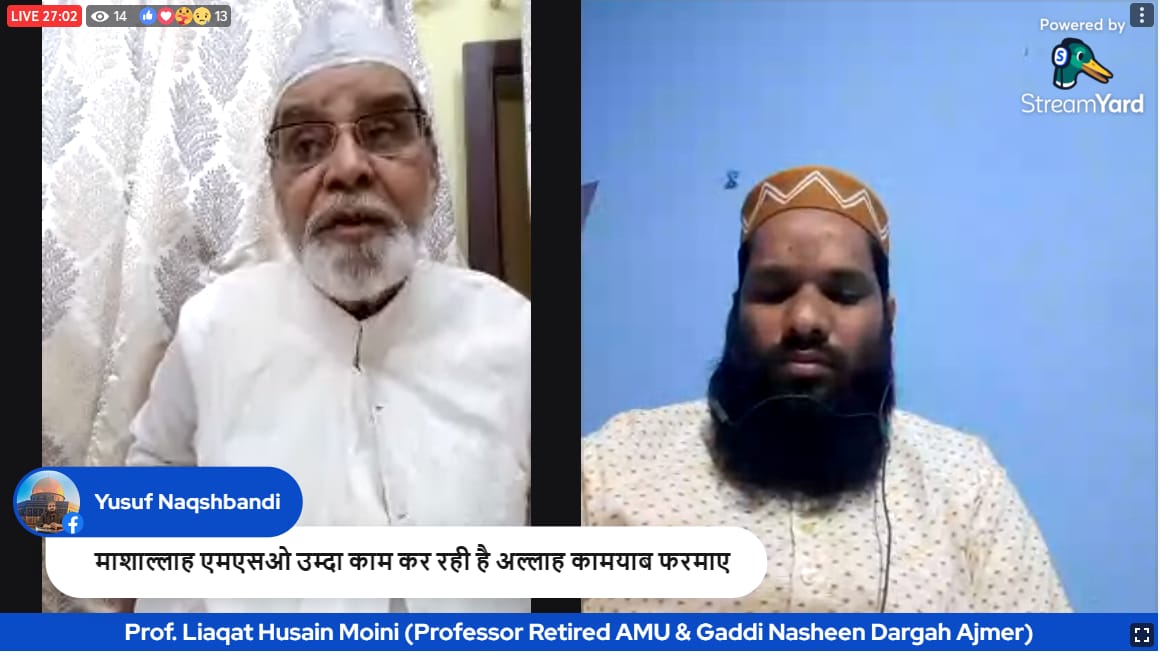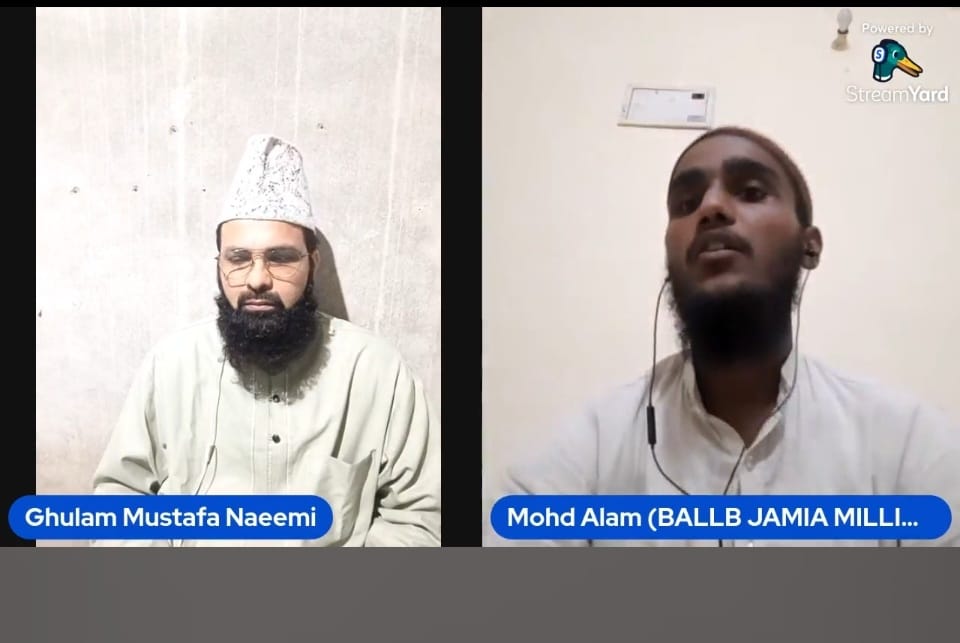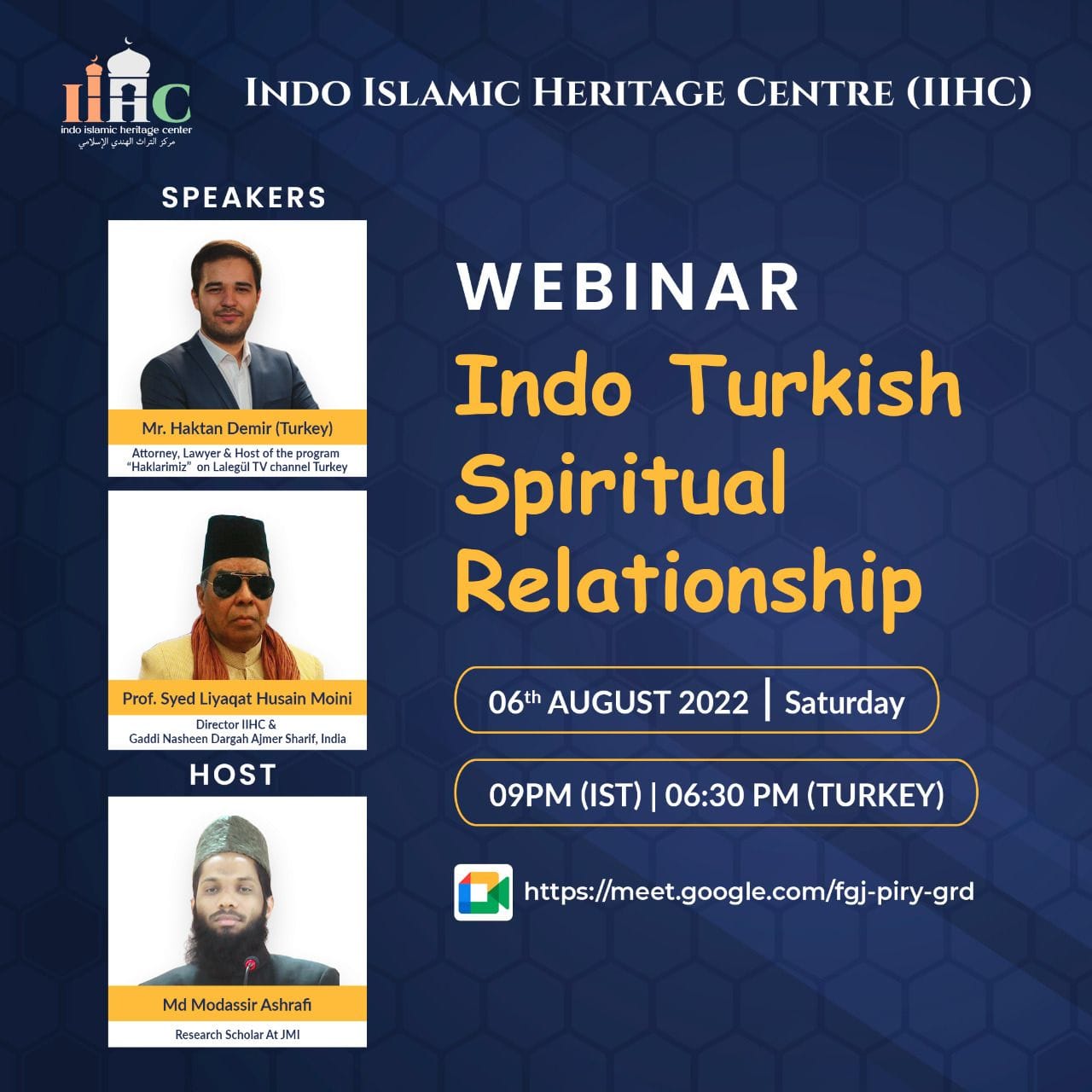27 April 2023, New Delhi. Indo Islamic Heritage Center organised an Webinar on “Indian Composite Culture and Its Importance”, Speaking to the webinar director of IIHC and Gaddi Nasheen of Dargah Khwaja Saheb Ajmer Shareef Prof (R) said that Indian composite culture refers to the diverse blend of customs, traditions, beliefs, and practices that have evolved over time in India, influenced by its rich history, religions, and diverse communities. India has a long and rich cultural heritage that has been shaped by centuries of interaction between different groups, including Hindus, Muslims, Christians, Buddhists, Jains, Sikhs, and others.
He said that Khwaja Moinuddin Chishti and other Sufi saint played a vital role in promotion & preservation of composite Culture. Sufis contributed to the country’s rich cultural landscape and has influenced the development of arts, literature, music, and architecture. Sufis has also contributed to the growth of religious tolerance, pluralism and secularism, which are integral to India’s identity as a nation.
He furthur said that Sufi saints like Khwaja Moinuddin Chishti, Hazrat Nizamuddin Auliya and Baba Farid have had a profound impact on Indian composite culture. They attracted people from all religions and castes and promoted a message of unity, tolerance and service to humanity.
Speaking on Indian Muslim he said that India is the most suitable country not only for practicing Islam but also for implementing the social revolution mentioned in Islam. Every customs and rituals of Islam can be fulfilled in India without any hindrance. The experiments of Sufi saints on the land of India for social movement in Islam were openly welcomed by the fair society here and today the whole world is looking for a way of peace done by successful experiments of Sufi Islam in India. He said that today in whole Muslim countries there is unrest in the name of Islam the ruling authoritarians have not only suppressed the voice of their people, but also the voice of liberal Islam. In this situation of terrorism and political crisis, Arab Muslims are also looking towards India because in India the world’s second largest number of Muslims are living peacefully with other societies.

Host of the webinar Modassir a research scholar of Jamia Millia Islamia said that composite culture of India is an essential part of the country’s identity and serves as a unifying force, bringing together people from different backgrounds, religions, and regions. Indian culture is the testament to the country’s rich heritage and serves as a source of pride and inspiration for our people.





